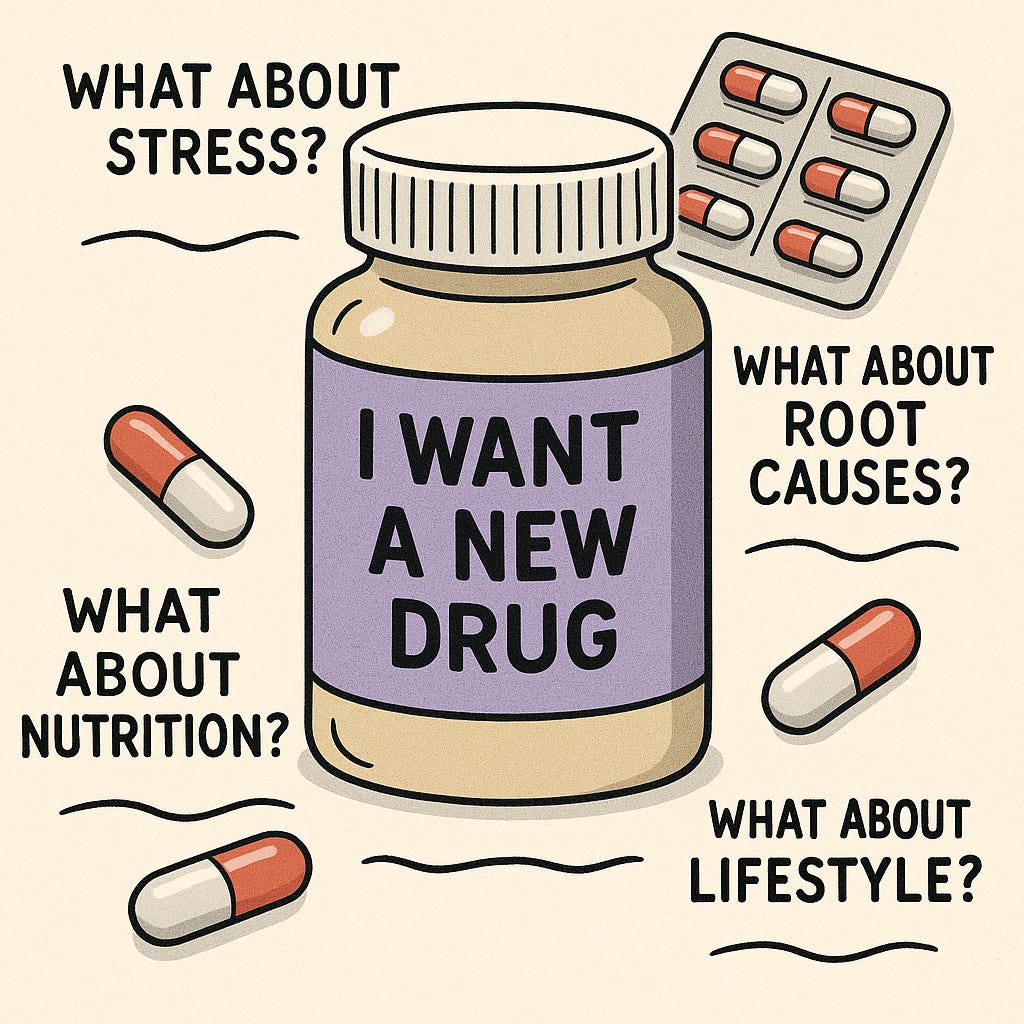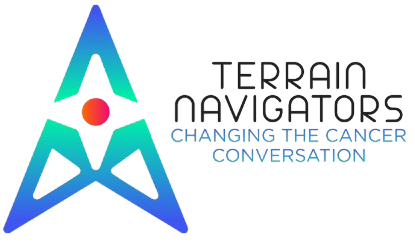(Going Beyond Prescription Drugs)
As a cancer coach who’s learned how to thrive post-diagnosis (for almost nine years as of this writing), I still keep a couple of toes planted in the conventional world. I occasionally attend online Zoom meetings hosted by traditional pancreatic cancer organizations like PanCAN, Lustgarten, SOS, Let’s Live, Project Purple, and some others I can’t even remember right now.
It’s my way of staying informed—and staying humble. And when I can (which isn’t often because of their ground rules), I offer my experience, wisdom and perspective.
These meetings frustrate the heck out of me.
The conversation in these meetings is stuck on repeat. “What chemo drug are you on?” “Is your CA19-9 going down?” “Any luck getting into that clinical trial?” It’s like being trapped in a pharma-sponsored echo chamber. The focus is so narrow, so pharmacologically obsessed, that it’s like the rest of the healing universe doesn’t exist.
Where are the conversations about nutrition? About gut health? About stress and inflammation and toxins and trauma? Where are the questions about how you’re sleeping, what you’re eating, whether you’re moving your body, or what makes you want to keep living?

Spoiler alert: these conversations don’t happen. Because in these Zoom rooms, root causes are a foreign language. They’re not just unspoken—they’re unimagined.
And if you dare mention that maybe, just maybe, what you do outside the chemo infusion chair might matter…you get the polite nod, the blank stare, or worse—the subtle eye roll.
This is the maddening part: people are desperate. They want to live. They want options. They want hope. But these orgs talk to them about a drug menu and call it empowerment. They treat people like passive recipients, not active participants in their own recovery.
Chemotherapy sometimes has a place. Clinical trials potentially save lives. But remember that the “standard of care” approach with pancreatic cancer is leading to seven out of 10 dying within the first year of diagnosis. NOT a good track record.
I’m someone who recovered and thrived after a diagnosis of one of the deadliest cancers out there—pancreatic—and I did it by combining evidence-based immunotherapy treatments with terrain-based healing: detoxification, mitochondrial support, emotional release, spiritual grounding, and other metabolic and radical remission strategies.
I took my power back. I was (and remain) the CEO of my health.
And that’s the conversation I wish these organizations were brave enough to have. I wish they’d move beyond prescription drugs, survival stats and side effect spreadsheets. I wish they’d empower patients to thrive—not just to endure.
Until then, I’ll keep showing up at these meetings, biting my tongue most of the time, and quietly hoping that someday, someone else in the room will ask the real question:
“What else can I do to heal?”
